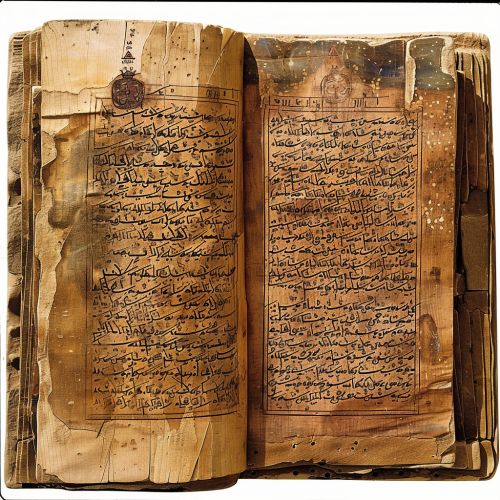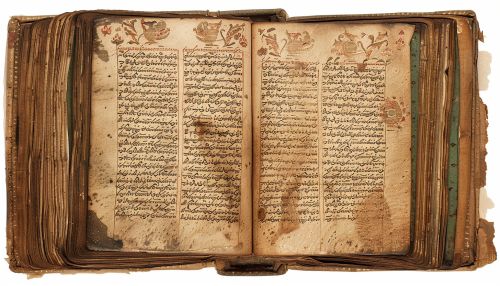Avesta
Origins and History
The Avesta is the primary collection of religious texts of Zoroastrianism, one of the world's oldest continuously practiced religions. The Avesta texts form the foundation of the Zoroastrian faith, which was the dominant religion of Persia (now Iran) before the rise of Islam. The Avesta is written in an old form of the Avestan language, a member of the Iranian family of languages.


The origins of the Avesta are shrouded in antiquity, with the texts themselves claiming to be the direct revelation of Ahura Mazda, the supreme deity of Zoroastrianism. The Avesta is believed to have been composed over a period of several centuries, from around the 5th century BCE to the 3rd century CE. The Avesta was initially transmitted orally, and only later written down.
Structure and Content
The Avesta is divided into several parts, each with its own unique focus and purpose. The most important part of the Avesta is the Yasna, which includes the Gathas, hymns attributed to Zoroaster himself. The Yasna is the liturgical core of the Avesta, containing the prayers and rituals that are central to Zoroastrian worship.
The Visperad is an extension of the Yasna, containing additional liturgical texts. The Vendidad, or Vidēvdāt, is a legal and mythological text, providing a guide to Zoroastrian law and detailing stories about the struggle between good and evil. The Yashts are hymns dedicated to various deities and heroes, while the Khorda Avesta is a smaller book of daily prayers.
Theological Themes
The Avesta presents a complex and rich theological system, centered on the dualistic struggle between Ahura Mazda, the god of light and wisdom, and Angra Mainyu, the destructive spirit. This cosmic struggle is reflected in the moral choices of individuals, with the Avesta providing guidance on how to live a righteous life.
The Avesta also presents a detailed cosmology, describing the creation of the world and the future end times. The text outlines a system of ritual purity and provides laws governing social, criminal, and religious matters.
Influence and Legacy
The Avesta has had a profound influence on the religious, cultural, and social life of Persia and other regions influenced by Zoroastrianism. The text has shaped Persian literature and influenced other religious traditions, including Judaism, Christianity, and Islam.
Despite the decline of Zoroastrianism in the face of Islamic expansion, the Avesta continues to be studied and venerated by Zoroastrians around the world. The text also holds significant interest for scholars of religion, linguistics, and history.
